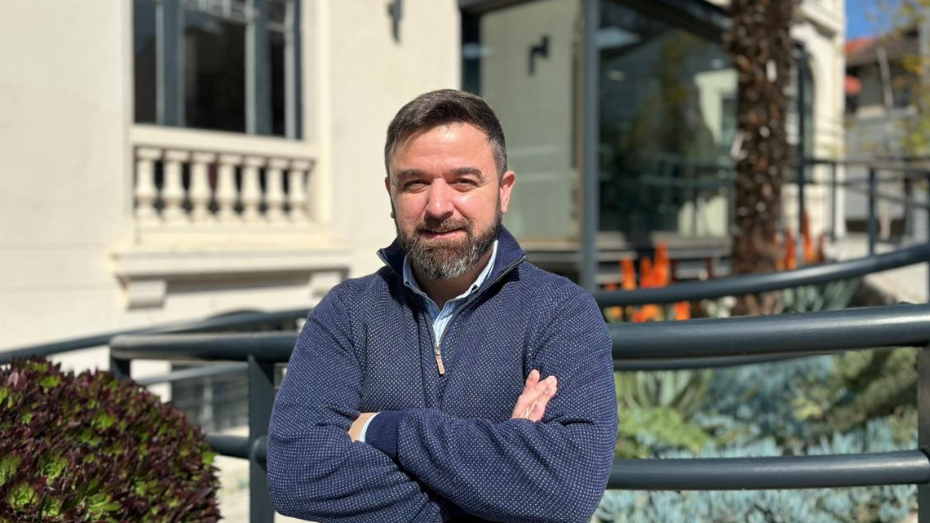
DIRECTOR DEPARTAMENTO DE ECONOMÍA
Ph.D. in Economics, Maxwell School of Syracuse University
M.A. in Economics, Washington University in St. Louis
B.A. in Economics, Universidad Católica del Uruguay
ÁREAS DE INVESTIGACIÓN
Economía del Crimen, Economía Urbana y Redes Sociales.
BIOGRAFÍA
Carlos Díaz es profesor asociado del Departamento de Economía de la Facultad de Economía y Negocios de la Universidad Alberto Hurtado e investigador asociado del Sistema Nacional de Investigadores (SNI) de Uruguay. Sus principales áreas de investigación son la economía del crimen, la economía urbana y las redes sociales. Recientemente ha publicado sus trabajos en el Journal of Economic Behavior and Organization, Review of Economics of the Household, Nature Human Behaviour, Telecommunications Policy, Crime Science, y el Journal of Empirical Legal Studies. Los resultados de sus investigaciones han recibido cobertura de medios internacionales, como The Guardian (Londres), El País (Madrid), La Nación (Buenos Aires), y Búsqueda (Montevideo). Es miembro del Directorio de la Sociedad de Economistas del Uruguay, investigador asociado del Centro Justicia y Sociedad de la Universidad Católica de Chile, e investigador principal del Núcleo Mileno en Complejidad Criminal (ANID). Carlos tiene un Ph.D. en economía por la Maxwell School de Syracuse University (Estados Unidos).
PUBLICACIONES RECIENTES
Cattaneo, M., Díaz, C., & Titiunik, R. (2025). Randomization inference for before-and-after studies with multiple units: An application to a criminal procedure reform in Uruguay. Journal of the Royal Statistical Society Series A: Statistics in Society, 1-20 [Web of Science]
DOI: https://doi.org/10.1093/jrsssa/qnaf192
Díaz, C., & Orozco, J. (2025). The impact of violence on economic growth: evidence from Colombia’s armed conflict. Defence and Peace Economics, 1-30 [Web of Science]
DOI: https://doi.org/10.1080/10242694.2025.2559009
Díaz, C., Fossati, S., & Trajtenberg, N. (2025). When ‘eyes on the street’ are not enough: Insights from itinerant street markets. Journal of Quantitative Criminology, 1-29 [Web of Science]
DOI: https://doi.org/10.1007/s10940-025-09620-y
Trajtenberg, N., Fossati, S., Díaz, C., Nivette, A., …, & Eisner, M. (2024). The heterogeneous effects of COVID-19 lockdowns on crime across the world. Crime Science, 13(22) [Web of Science]
DOI: https://doi.org/10.1186/s40163-024-00220-y
Díaz, C., & Patacchini, E. (2023). Parents, neighbors and youth crime. Review of Economics of the Household 21: 673-692 [Web of Science]
DOI: https://doi.org/10.1007/s11150-021-09597-0
Díaz, C., Fossati, S., & Trajtenberg, N. (2022). Stay at home if you can: COVID‐19 stay‐at‐home guidelines and local crime. Journal of Empirical Legal Studies, 19(4), 1067-1113 [Web of Science]
DOI: https://doi.org/10.1111/jels.12336
Díaz, C., Dodel, M., & Menese, P. (2022). Can one laptop per child reduce digital inequalities? ICT household access patterns under Plan Ceibal. Telecommunications Policy, 46(9), 102406 [Web of Science]
DOI: https://doi.org/10.1016/j.telpol.2022.102406
Díaz, C., Patacchini, E., Verdier, T., & Zenou, Y. (2021). Leaders in juvenile crime. Journal of Economic Behavior & Organization. Journal of Economic Behavior and Organization 192 (2021): 638-667 [Web of Science]
DOI: https://doi.org/10.1016/j.jebo.2021.10.034
Nivette, A. E., Zahnow, R., Aguilar, R., Ahven, A., Amram, S., Ariel, B., …, & Eisner, M. P. (2021). A global analysis of the impact of COVID-19 stay-at-home restrictions on crime. Nature Human Behaviour, 5(7), 868-877 [Web of Science]
DOI: https://doi.org/10.1038/s41562-021-01139-z
